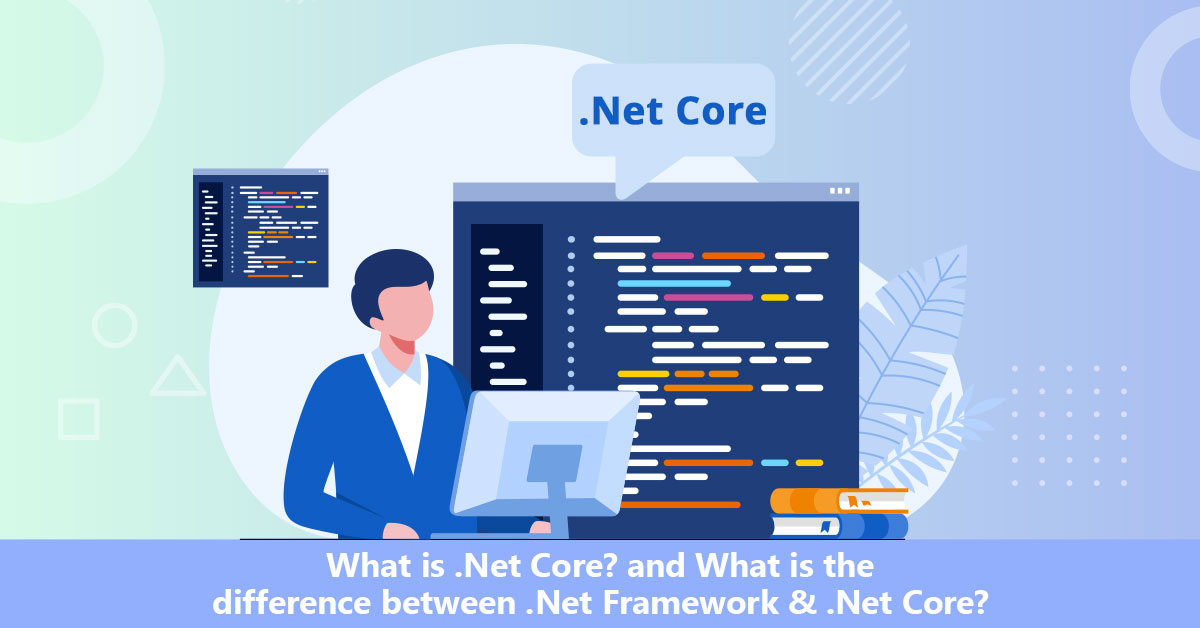
.NET Core is a general-purpose, open-source and free platform developed by Microsoft. This cross-platform framework can be used for different operating systems like Linux, Windows, and macOS. Microsoft.net core supports languages like C#, F#, as well as Visual Basic.NET. It is the successor of the .NET Framework and is considered to be a better and more efficient version of it.
Characteristics of Microsoft.net Core
Following are the various attributes of Microsoft.net core which you should know about to be able to make an informed choice.
- Cross-platform: The .NET Core can be run on macOS, Linux, and Windows operating systems. The runtime for the different operating systems can vary widely, even though the generation of output remains the same.
- Open-source Framework: Microsoft.net core is maintained by Microsoft and is an open-source framework. It is available under MIT and Apache 2 licenses. It is a part of the .NET Foundation project.
- Different Applications: One can run a plethora of applications and run them on .NET Core. For instance, one can easily develop and run apps for desktop, mobile, IoT, microservices, machine learning games, cloud, and so on.
- Consistency among different Architectures: Microsoft.net core has the ability to execute the code that shows the same set of behavior for different types of architectures such as x86, x64, and ARM.
- High Compatibility: The .NET Core platform is popular for its high compatibility with the .NET framework and Mono APIs. .NET Standard specifications have to be used to maintain the compatibility.
- CLI Tools: One can get access to CLI Tools or Command Line Interface tools for the purpose of consistent integration and development while using .NET Core.
- Flexible Deployment: It is quite easy and convenient to deploy .NET Core through system-wide or user-wide system with the help of Docker Containers.
- Modular Architecture: .NET Core is quite popular among users because it supports modular architecture. For this purpose, it uses the NuGet packages. Different varieties of NuGet packages are available out there. One can use them as per the features and requirements of .NET Core projects. As a result, it gets easier to bring down the memory footprint along with swift performance, and ease of maintenance.
- Multiple Language Compatibility: Microsoft.net core supports different programming languages such as Visual Basic, C#, and F#. Users can easily use their favorite IDE such as sublime text, Vim, Visual Studio Code, Visual Studio 2017/2019, etc.
Difference Between .NET Framework and Microsoft.NET Core
- While Microsoft.net core is completely an open-source platform, .NET Framework has only a few components that can be considered as open source.
- In the case of .NET Core, it is not possible to develop desktop applications. It basically emphasizes upon Windows store, web, and Windows mobile. However, .NET Framework can be used to develop applications for both web and desktop. The platform is compatible with both WPF applications and Windows forms.
- .NET Core is highly compatible with macOS, Windows as well as Linux operating systems. On the other hand, .NET Framework has compatibility with just Windows operating system. But the negative part about .NET Framework is that earlier, it was developed for supporting software and Microsoft application development on different operating systems.
- .NET Core package gets installed without being reliant on any of the operating systems, and this is possible because of its cross-platform attribute. On the contrary, .NET Framework comes installed in a single package meant for only Windows operating system.
- When it comes to performance and scalability, the .NET core is much more efficient as compared to .NET Framework. The former has been rated higher in terms of both performance and scalability.
- .NET Core offers active support for implementation and Microsoft application development services. The user can easily come up with a REST API for the implementation purpose. On the other hand, .NET Framework is not meant for the development and implementation of microservices. However, it is suitable for REST API.
- When using .NET Core, one can make the most out of lightweight editors and CLI tools for all the different platforms. However, .NET Framework creates some issues when you use Command Line Interface. It is suitable for lightweight CLI tools.
- .NET Core is well known for its impeccable quality and flexible deployment model. But in the case of the .NET Framework, the updated version gets deployed through the Internet Information server only.
- .NET Core has smooth compatibility with Xamarin – the open-source mobile application platform. The compatibility is possible because of .NET standard library. App developers can develop apps for Windows phones, Android as well as iOS ones. In this case, the .NET Framework comes as a sheer disappointment as it is not compatible with mobile application development.
- While .NET Core gets shipped as a collection of Nugget Packages, the .NET Framework libraries get shipped together.
NTSPL Microsoft Application Development Services
- Building modern and cloud-first applications for Microsoft azure
- Fluid mobile apps using Xamarin
- Building apps with Microsoft ai services
- Asp.net MVC web application development
- Collaborative solutions on SharePoint and office 365
- Microsoft Azure development – cloud solutions
- .Net third-party tools integration
Now that you know the difference between .NET Core and .NET Framework, you may want to know which one you should opt. Let us help!
Opt for Microsoft.net core Framework if –
- You are not too well-versed with Microsoft.net core.
- You have an imminent release schedule for apps.
- You want a stable ambiance to work.
- You hate one after another alterations and upgrades.
- You have a team of experts who have ample knowledge about the .NET Framework.
- You are fond of open-source platforms.
- You are working on applications for Linux, Mac OS, and Windows.
- You have a fair knowledge of .NET Core.
- You can devote enough time to learn new concepts and technology of .NET Core.
Takeaway
We have learned here the meaning and major attributes of the .NET Core. This post has also enlisted the differences between .NET Core and .NET Framework. Choose any one as per your requirement. Keep in mind the above-mentioned criteria while making your choice. Know that .NET Core is more effective and advanced than .NET Framework.
If you are looking for Microsoft Application Development Services, bank upon the expert service providers. NTSPL enables organisations to innovate by developing applications. Assisting organizations in exploiting IT concepts such as Cloud, Big Data, and Mobility, NTSPL has demonstrated competence in utilizing the Microsoft development stack to create cross-device and cross-platform applications.





